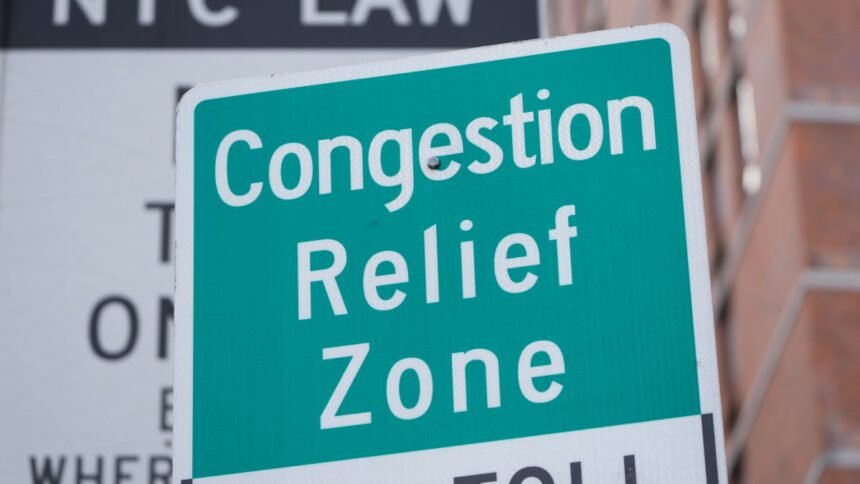The much talked about but wildly successful, by New York state and transportation officials’ standards, congestion pricing program faces a federal deadline on Sunday to turn off its camera — so is it likely not to happen?
U.S. Transportation Secretary Sean Duffy, who called the toll a “slap in the face to working class Americans and small business owners,” originally told the state to end the tolling program by March 21. When state officials refused, federal authorities set a new deadline of April 20. New York Gov. Kathy Hochul had said the state intended to ignore that deadline, too.
The dispute headed to federal court in Manhattan, where the Metropolitan Transportation Authority (MTA) sued Duffy over his February decision to rescind the toll’s federal approval. Congestion pricing advocates say it’s meant to deter drivers and relieve traffic backups while providing billions of dollars for the city’s transit system.
Lawyers for the two sides recently reached an agreement that appeared to slow things down. They proposed a briefing schedule that allows for court filings through the end of July and possibly into October, while government lawyers indicated they wouldn’t seek an injunction to stop the tolls while the lawsuit proceeds, according to a joint letter signed by an MTA lawyer to the judge in the case.
But the U.S. Department of Transportation has said that it wasn’t backing off from its immediate demands to end the tolling.
“The deadline is April 20 and we expect New York to comply and terminate this program. USDOT will continue to fight for working class Americans whose tax dollars have already funded and paid for these roads,” a statement from the USDOT said Friday.
The fee started Jan. 5 on most drivers entering Manhattan neighborhoods south of Central Park. It comes on top of tolls drivers already pay to cross bridges and tunnels into Manhattan.
President Donald Trump, whose namesake Trump Tower and other properties are within the congestion zone, vowed to kill the plan as soon as he took office.











